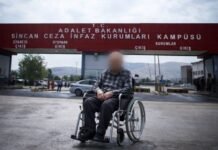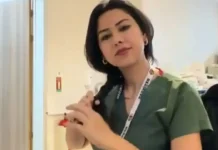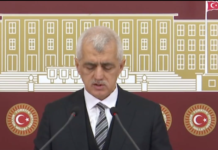Peoples’ Democratic Party (HDP) lawmaker Ömer Faruk Gergerlioğlu in a Monday tweet criticized the worsening conditions in İstanbul’s Silivri Prison, saying the heating system doesn’t work despite the extremely cold temperatures affecting the city.
Sharing a letter from an inmate’s family member, Gergerlioğlu revealed that heating and warm water are currently not provided in Silivri Prison. “Is the prison administration trying to freeze inmates to death?” he asked.
Cevabınız ?@adalet_bakanlik
"Eşim Silivri 5noluda kalıyor.
Kasım ilk hafta arıza var gerekçesi ile kaloriferlerin açılmafığını birkaç güne açılacağı bildirilse de.Bugün 22 Kasım hâlâ kalorifer ler açık değil ve sıcak su yok.
Hastalık yetmedi soğuktan mı öldürülmeye çalışılıyor"— Ömer Faruk Gergerlioğlu (@gergerliogluof) November 22, 2021
Prison conditions in Turkey have been the subject of much criticism. The European Court of Human Rights (ECtHR) posed a series of questions to the Turkish government about the abysmal conditions of Turkish prisons in April.
The questions concerned complaints about overcrowding, unsanitary conditions and lack of access to open air areas as well as what social, cultural and sports activities the inmates are allowed to participate in.
Inmates previously have complained about not being able to access proper healthcare.
Since April 2020 four seriously ill prisoners over the age of 70 have died in penal institutions; five inmates suffering from cancer passed away shortly after they were released; and 16 died of chronic illnesses while imprisoned.
The purge of thousands of dissidents in the aftermath of a coup attempt in July 2016 has filled Turkey’s prisons, which today are overcrowded with tens of thousands of political prisoners. As COVID-19 infections increased in the country, outbreaks in prisons became commonplace and disproportionately affected political prisoners.
The Turkish parliament passed an early parole law on April 14 aimed at reducing the inmate population of the country’s overcrowded prisons due to the coronavirus pandemic. Yet, the legislation excluded political prisoners, including opposition politicians, journalists, lawyers, academics and human rights defenders convicted under the country’s controversial counterterrorism laws. The law prompted calls from the UN, the EU and rights groups for the non-discriminatory reduction of prison populations.















